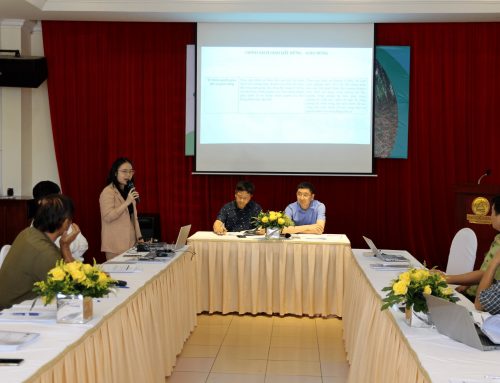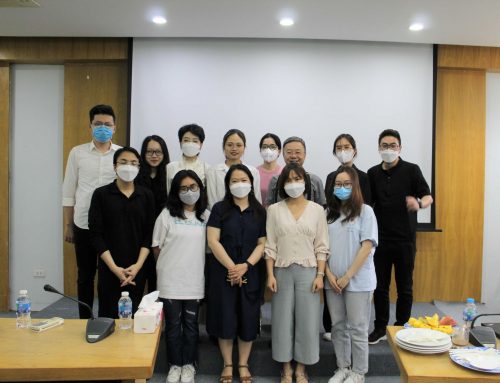In recent years, other than poverty reduction and socio-economic development programmes for mountainous areas of the government, local non-governmental organizations (NGOs) including Cooperation for Development Group (CDG) have also run a variety of projects to support ethnic minority poverty reduction, promote grassroots democracy, improve healthcare system, and promote gender equality. However, the material and spiritual poverty rates between mountain and lowland areas remain a tremendous gap, requiring positive engagement on the part of NGOs.
To (1) share successful methods and lessons learned from NGOs’ activities in poverty reduction and promotion of grassroots democracy, improved healthcare system and gender equality in mountainous areas, and (2) seek funding opportunities for these activities in the near future, CDG collaborated with the Consultative Institute for Socio-Economic Development of Rural and Mountainous Areas (CISDOMA) to organize the seminar Vietnamese non-governmental organizations engaging in poverty reduction and improvement of healthcare, grassroots democracy and gender equality in mountainous areas – Successes and lessons learned with sponsorship of CARE organization in Vietnam.
Attending the seminar were 55 representatives from Department of Ethnic Policies, Nation Assembly Office, Department of Cooperatives and Rural Development (DCRD), Department of Propaganda – Committee of Ethnic Minority Affairs, Centre of Social Organization Study- Ministry of Home Affairs, CDG members, other NGOs, and representatives from NGO project areas.
At the seminar, Le Quoc Hung, President of CDG, shared about poverty reduction in northern mountainous areas, the roles of NGOs, sustainable livelihood models developed by RDSC, and RTCCD’s maternal healthcare programmes in Muong Nhe district.
The seminar discussed the following topics:
- Existing issues in poverty reduction in northern mountainous areas such as inconsistent and scattered investment, top-down mechanism, lack of civil engagement, and group benefits;
- Methods employed successfully by NGOs to overcome shortcomings in poverty reduction in northern mountainous areas such as human rights-based, participatory, co-working and co-learning approaches; and
- Problems/gaps which require particular attention from NGOs and the Government of Vietnam such as excessive investment in infrastructure system despite lack of financial and technical support, lack of investment in land preservation, re-illiteracy, poor medical services leading to re-poverty, and inadequate capacity of local authorities.
At the seminar, Ngo The Hien, Deputy Chief of DCRD, said: “In the last few years, non-governmental organizations in Viet Nam have developed effective methods to support poverty reduction in mountainous areas and provided useful recommendations for governmental poverty reduction policies.” He also supported the idea that NGOs should not be discriminated against by other sectors. Instead, there should be equal opportunities for NGOs to engage in state poverty reduction projects, and the government should find better approaches to the NGO sector.
The contributions from the seminar participants showed that to reduce poverty in mountainous areas, apart from the successes achieved, there were still issues that required more effective engagement from the government, donors and NGOs to overcome.




